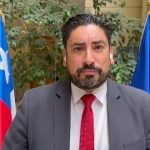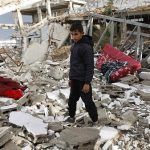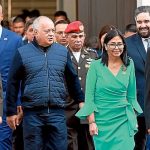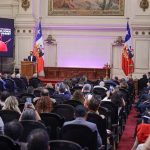Geneva, 2 October, 2025.-UN High Commissioner for Human Rights Volker Türk on Thursday called for urgent action to prevent large-scale, ethnically-driven attacks and atrocities in El Fasher, as the Rapid Support Forces (RSF) intensify efforts to take control of the long-besieged capital of Sudan’s North Darfur State.
“After over 500 days of unremitting siege by the RSF and incessant fighting, El Fasher is on the precipice of an even greater catastrophe if urgent measures are not taken loosen the armed vice upon the city and to protect civilians,” said Türk.
Reports of the pre-positioning of long-range drones by the RSF in South Darfur have raised grave concerns about the possibility of further intensification of hostilities in the coming days.
Civilians continue to bear the brunt of both indiscriminate and targeted attacks as hostilities have intensified in El Fasher. Between 19 and 29 September, at least 91 civilians were killed in RSF artillery shelling, drone strikes and ground incursions. Along with persistent attacks on civilian objects, this appears to be an effort to force the mass displacement of civilians from El Fasher, including Abu Shouk camp for internally displaced people.
The city’s Daraja Oula neighbourhood, which has received civilians displaced from Abu Shouk camp, has come under repeated attack, including two drone strikes on a market in the last week and an earlier drone strike on a mosque which killed at least 67 civilians on 19 September. On 30 September, the UN Human Rights Office received credible reports that at least 23 civilians were killed when a community kitchen was shelled in the Abu Shouk neighbourhood.
The UN Human Rights Chief stressed the urgent need to ensure protection of civilians remaining in El Fasher, including those who may not be able to leave, such as the elderly, people with disabilities and those with chronic health conditions.
“Safe and voluntary passage of civilians must be ensured out of El Fasher, and throughout their movement along key exit routes and at checkpoints controlled by different armed actors,” said Türk, following persistent reports of serious violence against those fleeing, including summary executions, torture, abductions and looting.
He highlighted the risk of recurrence of patterns of ethnically-motivated violations and abuses against civilians, such as those they faced when they fled the earlier RSF offensive on Zamzam IDP camp in mid-April, including the systematic use of sexual violence targeting Zaghawa women and girls.
He also called on the parties to the conflict to allow immediate and unhindered access for desperately-needed humanitarian aid into the city.
The UN Human Rights Chief’s calls come at a time of unimaginable difficulty for civilians trapped in El Fasher, with very limited access to food, water and health care.
“As essential supplies are dwindling daily, and prices are skyrocketing, the recent attack on one of the few remaining community kitchens will further diminish what remains of the right to food,” said Türk. “The cruelty of the situation is compounded by continued arbitrary RSF restrictions on bringing food and essential supplies into the city, and credible reports of civilians tortured and killed by RSF fighters for doing so,” he added.
Türk underlined the prohibition under international humanitarian law of the use of starvation of the civilian population as a method of warfare, and the obligation to protect humanitarian personnel, including local responders. He renewed his call for the siege to be immediately lifted and for all parties to ensure the unimpeded delivery of humanitarian assistance. He also emphasized the responsibility of the RSF and groups that control checkpoints along exit routes to ensure the protection of civilians and allow them safe and voluntary passage.
He called upon all parties and Member States with direct influence on events on the ground to take urgent measures to prevent atrocities. «Atrocities are not inevitable; they can be averted if all actors take concrete action to uphold international law, demand respect for civilian life and property, and prevent the continued commission of atrocity crimes.»








